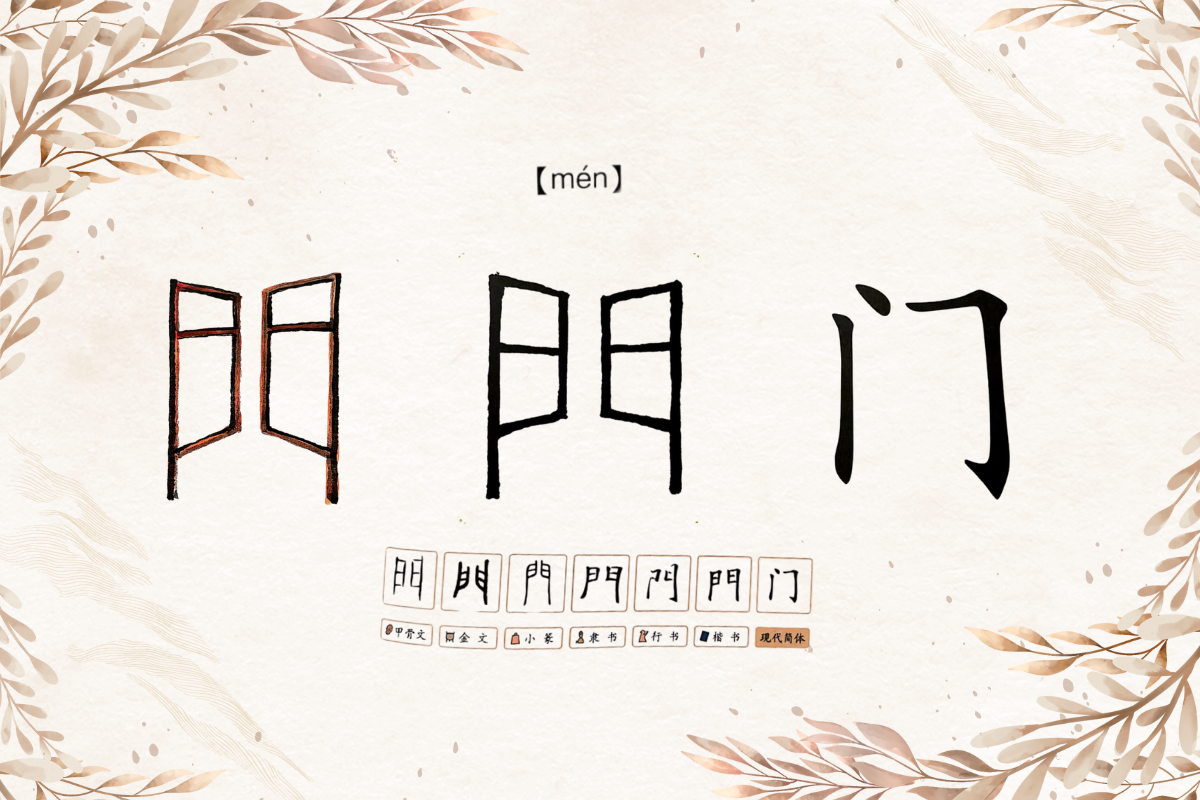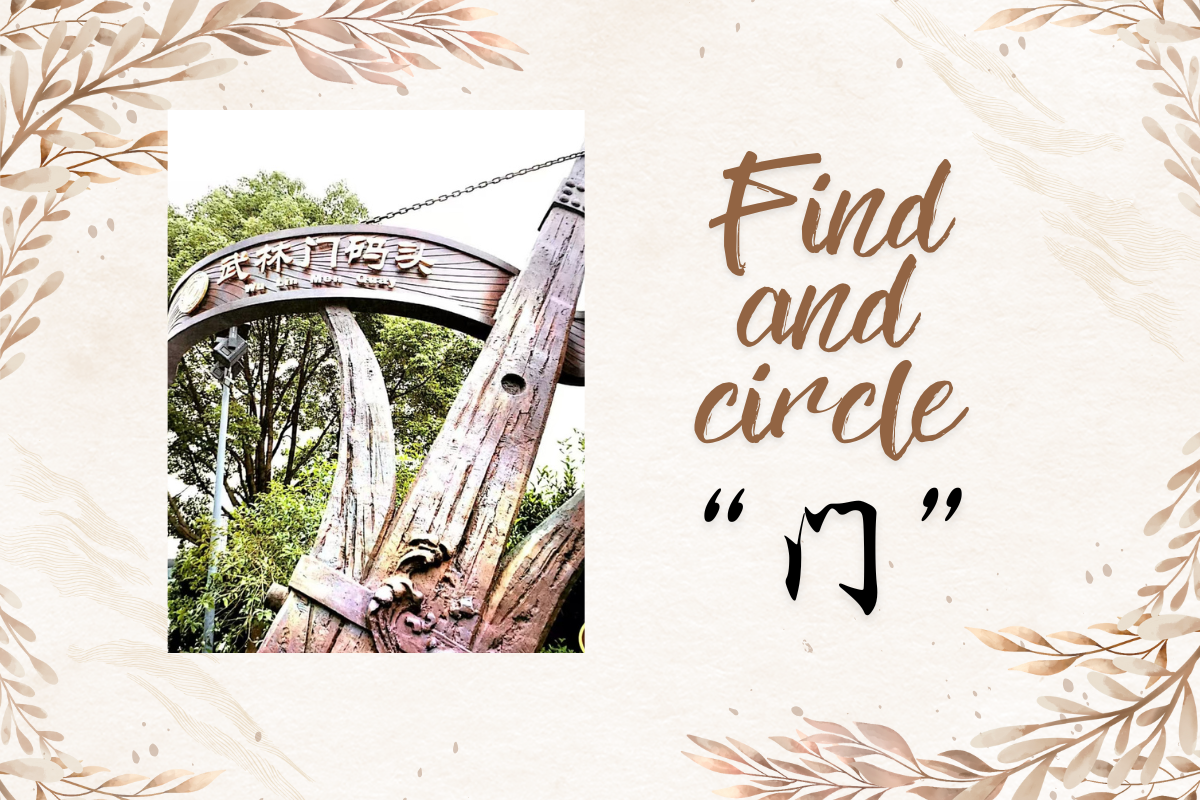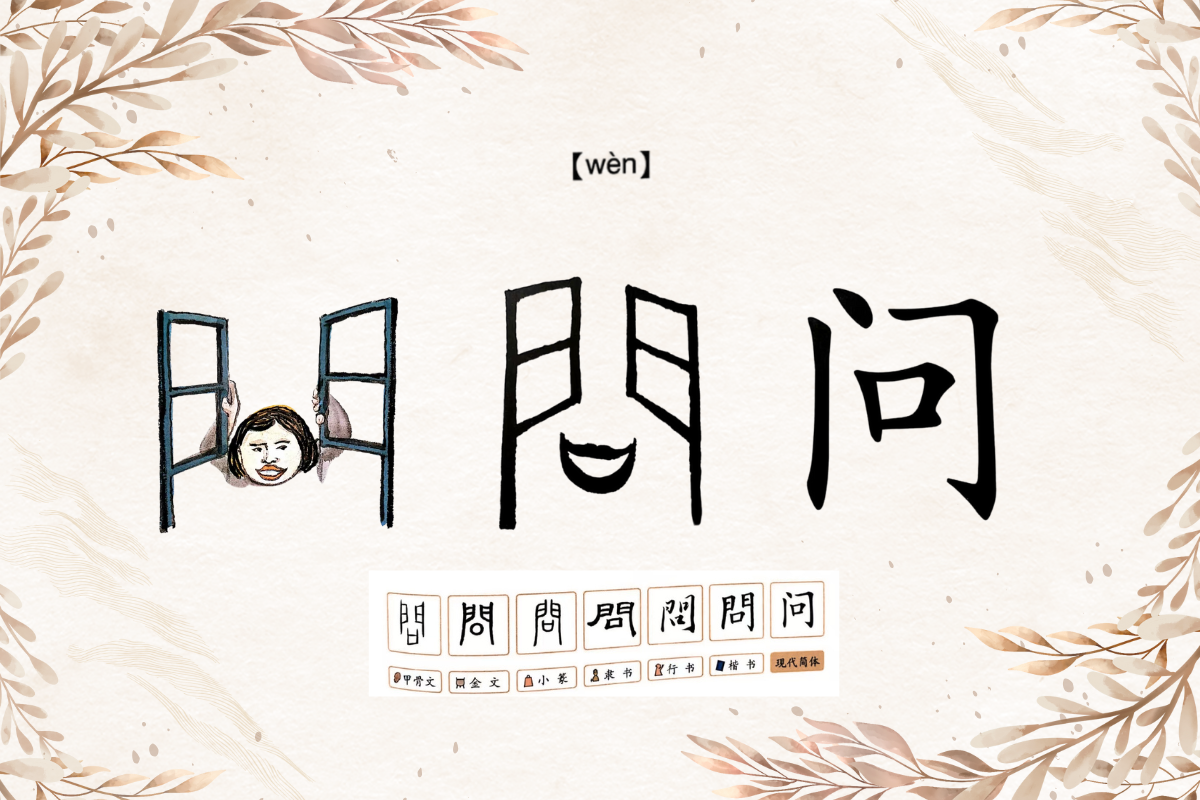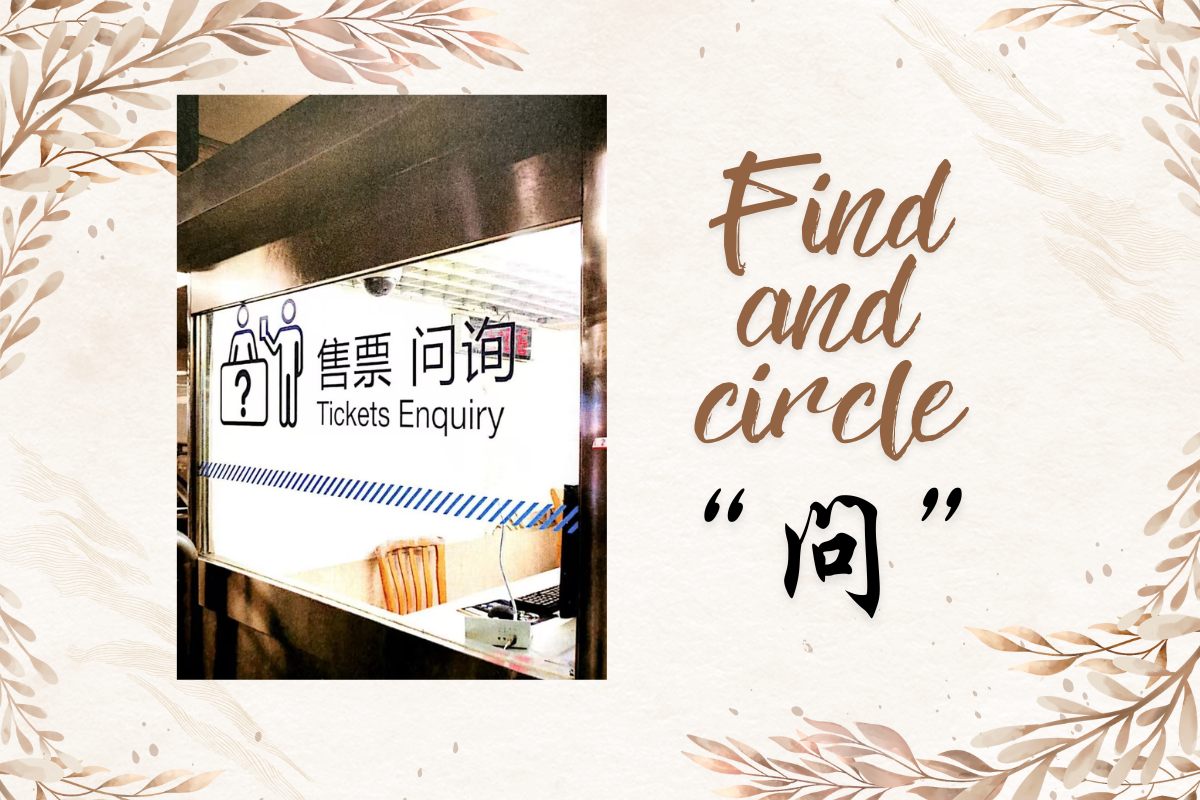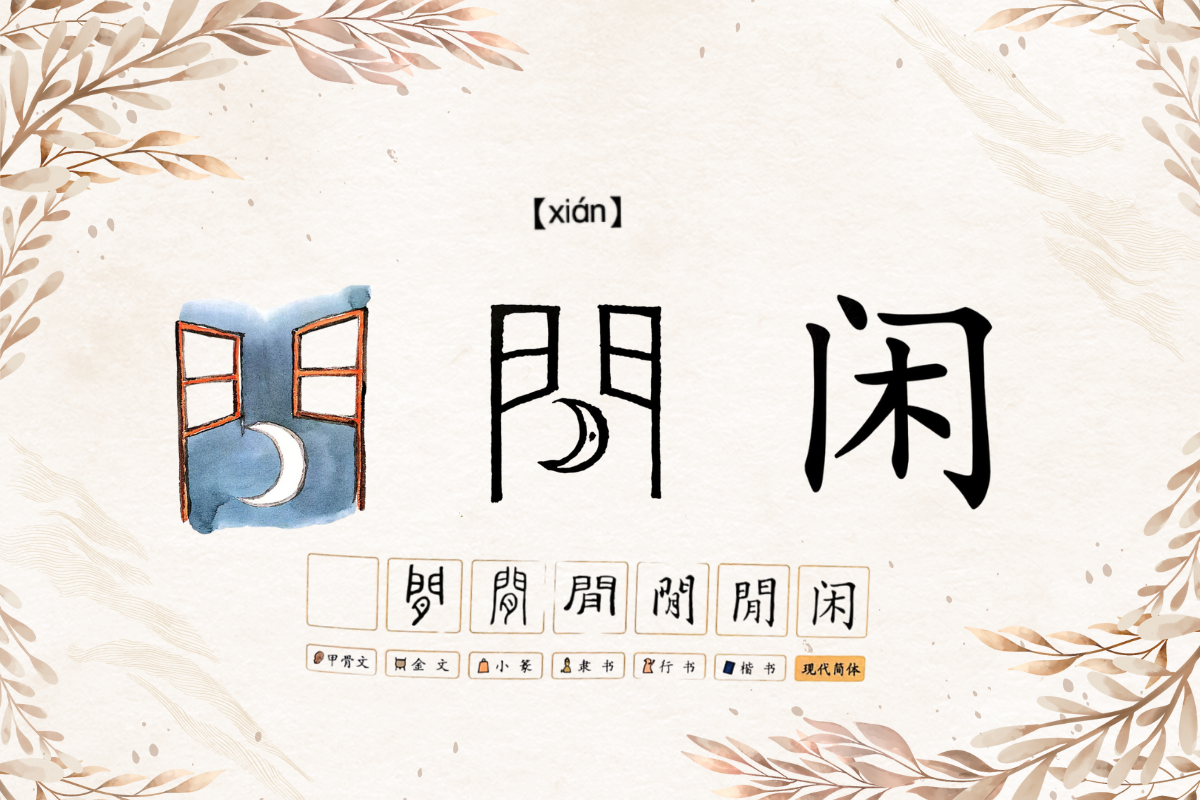Hanzi Alive!(12)
Chinese characters are the universe behind the door - '门' (mén) is the boundary of home, '问' (wèn) is the wisdom at the door's opening (door + mouth), while '闲' (xián) is the poetic image of ancient people leaning on the door to gaze at the moon (door + moon). These three characters take you through the courtyard of Chinese culture.
门(mén)
Explanation:
- "门" (door) looks like a set of double doors.
Example :
- Please close the door.
请关上门。
qǐng guān shàng mén. - There are two doors in this room.
这个房间有两扇门。
zhè ge fáng jiān yǒu liǎng shàn mén.
Find and circle "门" in the image:
问(wèn)
Explanation:
- A mouth between opening doors symbolizes someone asking a question from outside the door; “问" (wèn) means "to ask."
Example:
- I want to ask you a question.
我想问你一个问题。
wǒ xiǎng wèn nǐ yí ge wèn tí. - May I ask where the restroom is?
请问洗手间在哪里?
qǐng wèn xǐ shǒu jiān zài nǎ lǐ?
Find and circle "问" in the image:
闲(xián)
Explanation:
- When the door is left half-open, no one disturbs you, and you can see a crescent moon through the doors. Isn't that a relaxing atmosphere! This character "闲”(xián) means "idle" or "unoccupied."
Example:
- She enjoys her leisure time.
她喜欢闲暇时光。
tā xǐ huān xián xiá shí guāng. - He is free this afternoon.
他今天下午很闲。
tā jīn tiān xià wǔ hěn xián.
Find and circle "闲" in the image:
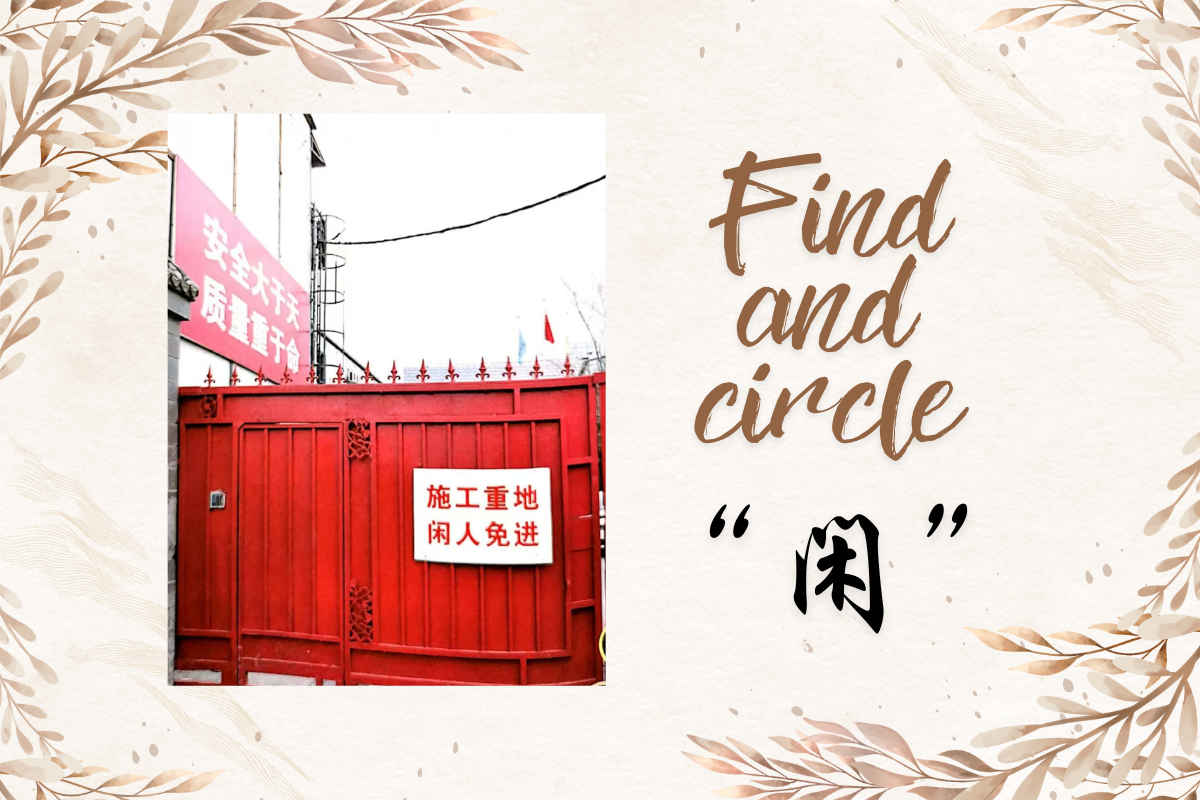
Now you hold the key to opening doors: passing through the '门' framework, you learn the etiquette of '问', and also touch upon the romance of '闲'. The next time you see the moon, perhaps you will remember - hidden in characters is a door to the ancient people's souls.
